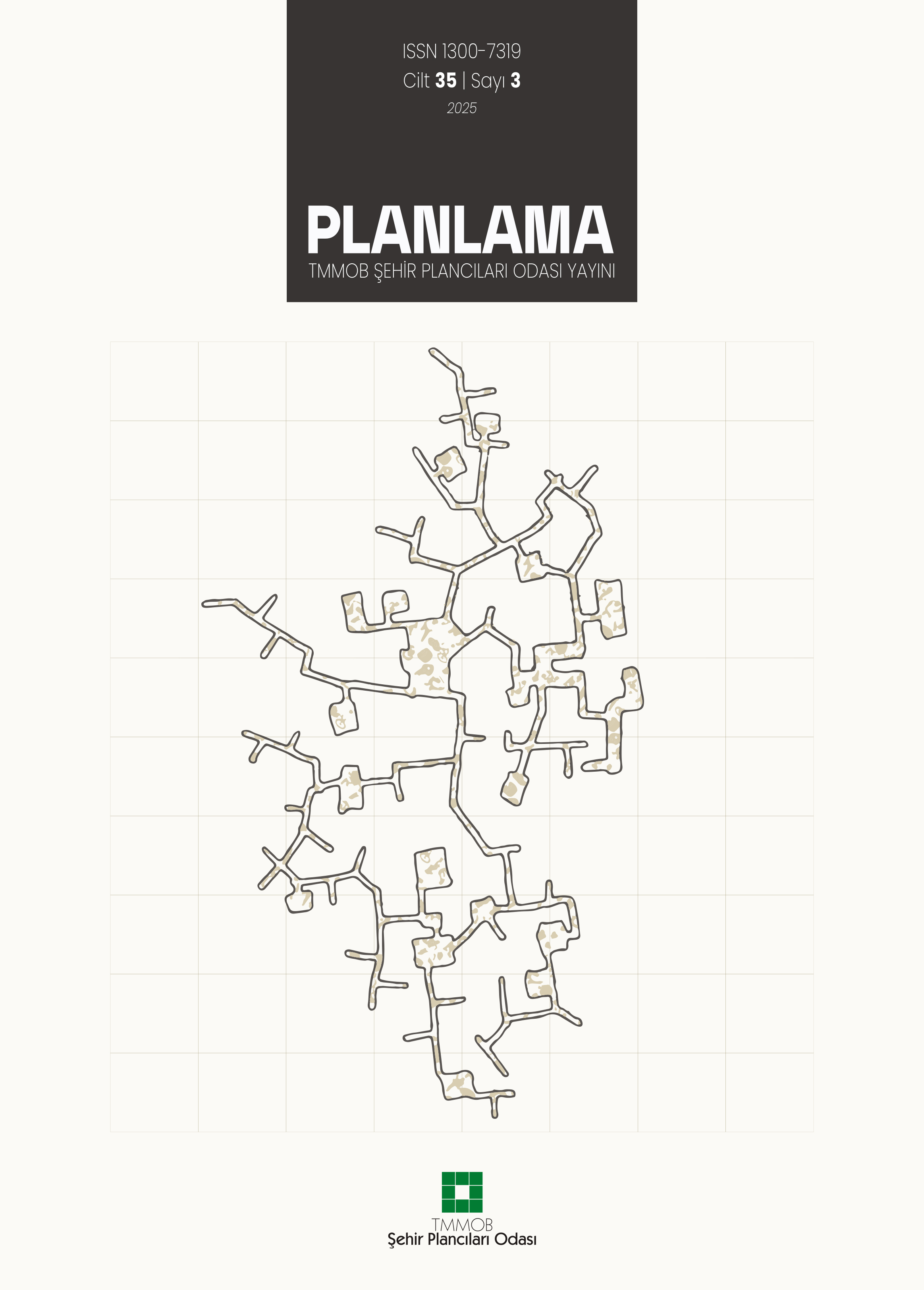Suriyeli Göçmen Emeğinin İstihdama Dahil Olma Sürecinde Sermaye Türlerinin ve Sosyal Ağların Etkisi: İstanbul Örneği
Nail Gökhan Karabulut1, Ferhan Gezici21İstanbul Teknik Üniversitesi, Lisansüstü Eğitim Enstitüsü, Şehir ve Bölge Planlama Anabilim Dalı, Doktora Öğrencisi, İstanbul2İstanbul Teknik Üniversitesi Mimarlık Fakültesi, Şehir ve Bölge Planlama Anabilim Dalı, İstanbul
Bu araştırma, Suriyeli göçmen işgücünün emek piyasasına dahil olma ve istihdam hareketliliği sürecinde sosyal ve beşeri sermayenin etkisini İstanbul örneğinde incelemektedir. Göç süreci başladıktan sonra göçmenler, gittikleri ülkede hayatta kalabilme, çaresizlik, aciliyet gibi nedenlerle aktif ya da yedek işgücünün bir parçası olarak emek piyasasına dahil olmaktadır. Bu süreçte göçmenler yaşadıkları kentin mevcut istihdam sorunları üzerine eklenen yeni bir alan açmaktadır. Bu araştırmada, heterojen grup olarak Suriyeli göçmenlerin istihdamda hareketliliği Bourdieu sosyolojisinin tariflediği sosyal ve beşeri (kültürel) sermaye kavramlarından yararlanılarak ele alınmaktadır. Sosyal ve beşeri sermayenin kullanımı, yeniden oluşumu ve birbirine dönüşümünün emek piyasasına dahil olmada ve iş hareketliliğinde etkinliği sorgulanmaktadır. Örnek alan olarak seçilen İstanbul’da, Suriyeli göçmen işgücünün emek piyasasındaki durumunu belirli sektör özelinde ve/veya yerli işgücünün algısı üzerinden inceleyen akademik ilgi son yıllarda artış göstermektedir. Ancak daha ilginç ve bilinmeyen alan olarak Suriyeli göçmenlerin sosyal ve beşeri sermayesine odaklanan, emek piyasasındaki süreci irdeleyen araştırma noktasında boşluk vardır. Araştırmanın literatürdeki bu boşluğa katkı sunması hedeflenmektedir. Derinlemesine mülakata dayalı keşfedici, nitel bir yöntemle ele alınan araştırma kapsamında 35 görüşme gerçekleştirilmiştir. Bulgular, istihdam edilmede sosyal sermayenin bileşeni olarak sosyal ağların rolünün etkili olduğunu ortaya çıkarmıştır. Topluluk bağlarını kullanmalarının ve yeni sosyal ağlara dahil olmalarının işe erişimde avantaj sağladığı gözlenmiştir. Mekansal olarak yer seçimi ve iş bulma konusunda pozitif bağlantı olsa da ilk işe erişimlerin emeğin ucuz ve güvencesiz olduğu bölgelerde yoğunlaştığı tespit edilmiştir. Niteliğine uygun mesleki hareketlilikte dil becerisi, tecrübe ve eğitim gibi beşeri sermaye bileşenlerine göre farklılaşma gözlenmiştir.
Anahtar Kelimeler: Beşeri sermaye, emek piyasası; sosyal sermaye; Suriyeli göçmen.
The Effect of Capital Types and Social Networks on the Labor Force Participation Process of Syrian Migrants: The Case of Istanbul
Nail Gökhan Karabulut1, Ferhan Gezici21Istanbul Technical University, Institute of Graduate Studies, Department of Urban and Regional Planning, PhD Student, Istanbul2Istanbul Technical University, Faculty of Architecture, Department of City and Regional Planning, Istanbul
This research examines the impact of social and human capital on the labor market participation and mobility of the Syrian migrants in the case of Istanbul. Immigrants are participated in the labor market as a part of active or reserve labor force for reasons such as survival, desperation and urgency in the migrated country. In this process, they give a new topic added to the existing employment problems of the city where they live. In this study, employment mobility of Syrian immigrants in the labor market as a heterogeneous group is discussed by making use of the capital concepts defined by Bourdieu sociology and the theory of social network. The effectiveness of the use, reproduction and transition of social and human capital in labor market and mobility (occupational) has been questioned. In Istanbul, as a study case area, academic interest in examining the situation of the Syrian labor force in the labor market in terms of a specific sector and/or the perception of the domestic labor force has increased recent years. However, there is lack of academic studies which focus on the social and human capital of Syrian immigrants which is more unknown and more interesting area and examines the process in the labor market. The aim of the study is to contribute to this gap in the literature. 35 interviews were conducted within the scope of the research, which was handled with an exploratory, qualitative method based on in-depth interviews. The findings revealed that the role of social networks as a component of social capital is effective for labor participation. It has been observed that the use of existing social ties and the involvement in new social networks provide an advantage in accessing to job. Although there is a positive correlation between spatial location and job finding, it has been determined that access to first job is concentrated in regions where labor is cheap and insecure. A differentiation has been observed in vocational mobility appropriate to its qualifications according to human capital components such as language skills, experience and education.
Keywords: Human capital, labor market; social capital; Syrian migrant.
Makale Dili: Türkçe














